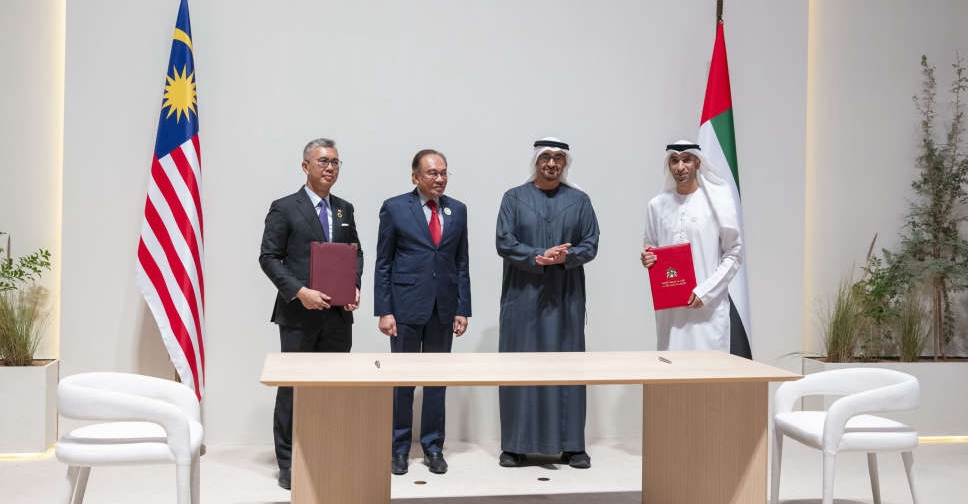
The United Arab Emirates and Malaysia have signed a Comprehensive Economic Partnership Agreement (CEPA) during a ceremony witnessed by President His Highness Sheikh Mohamed bin Zayed Al Nahyan and Anwar Ibrahim, Prime Minister of Malaysia.
The agreement is designed to accelerate bilateral trade, promote private sector collaboration, and create new opportunities for investment in high-growth sectors.
The CEPA was signed at Abu Dhabi National Exhibition Centre (ADNEC) in the presence of both leaders by Dr. Thani bin Ahmed Al Zeyoudi, UAE Minister of State for Foreign Trade, and Tengku Zafrul Aziz, Malaysia’s Minister of Investment, Trade and Industry.
His Highness Sheikh Mohamed bin Zayed Al Nahyan emphasised the significance of the agreement in strengthening the economies of both nations, noting that it is a pivotal milestone in UAE-Malaysia relations.
His Highness remarked that Malaysia, with its fast-growing economy and pro-trade policies, is a vital partner in Southeast Asia. His Highness noted that the agreement aims to deepen cooperation in key sectors, reinforce supply chains, unlock investment potential, and open new doors for the two countries’ private sectors to thrive together.
The UAE-Malaysia CEPA will reduce or eliminate tariffs on a wide range of goods, streamline trade procedures, and enhance market access for service exports.
Malaysia, Southeast Asia’s fourth-largest economy, is already one of the UAE’s top trading partners in the ASEAN region, with non-oil bilateral trade reaching $4.9 billion in 2023 and $4 billion in the first nine months of 2024. The UAE is also Malaysia’s second-largest trade partner in the Arab world, accounting for 32% of Malaysia’s trade with Arab nations.
The agreement is projected to solidify the UAE as a strategic hub for Malaysian exports to the Middle East, North Africa, and beyond while opening the ASEAN market to UAE investors and entrepreneurs.
The UAE’s CEPA programme is a cornerstone of its efforts to drive non-oil foreign trade to AED4 trillion ($1.1 trillion) by 2031 and foster international cooperation with strategic markets such as the ASEAN bloc, which boasts a GDP of more than $2.9 trillion and a population of 647 million people.



 US starts collecting Trump's new 10% tariff
US starts collecting Trump's new 10% tariff
 Nasdaq set to confirm bear market as Trump tariffs trigger recession fears
Nasdaq set to confirm bear market as Trump tariffs trigger recession fears
 Dana Gas and Crescent Petroleum exceed 500M boe in Khor Mor field
Dana Gas and Crescent Petroleum exceed 500M boe in Khor Mor field
 China to impose tariffs of 34% on all US goods
China to impose tariffs of 34% on all US goods
 Shares bruised, dollar crumbles as Trump tariffs stir recession fears
Shares bruised, dollar crumbles as Trump tariffs stir recession fears



